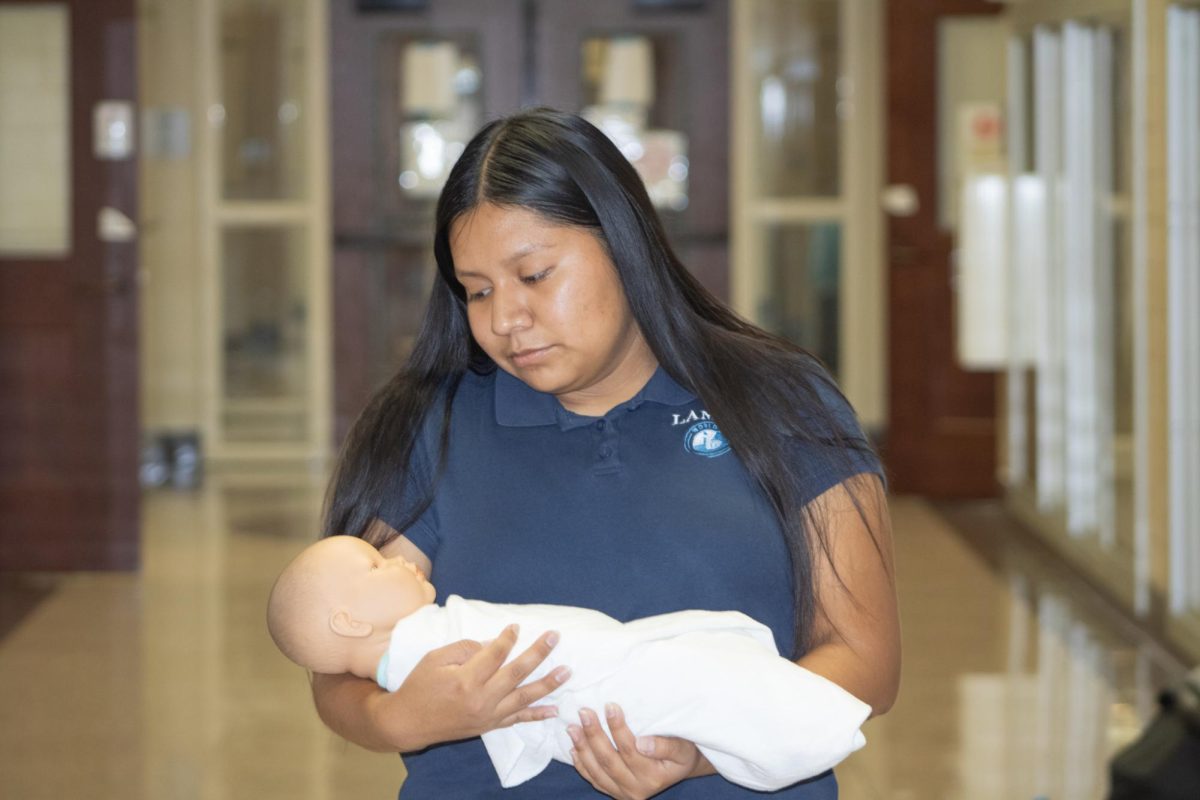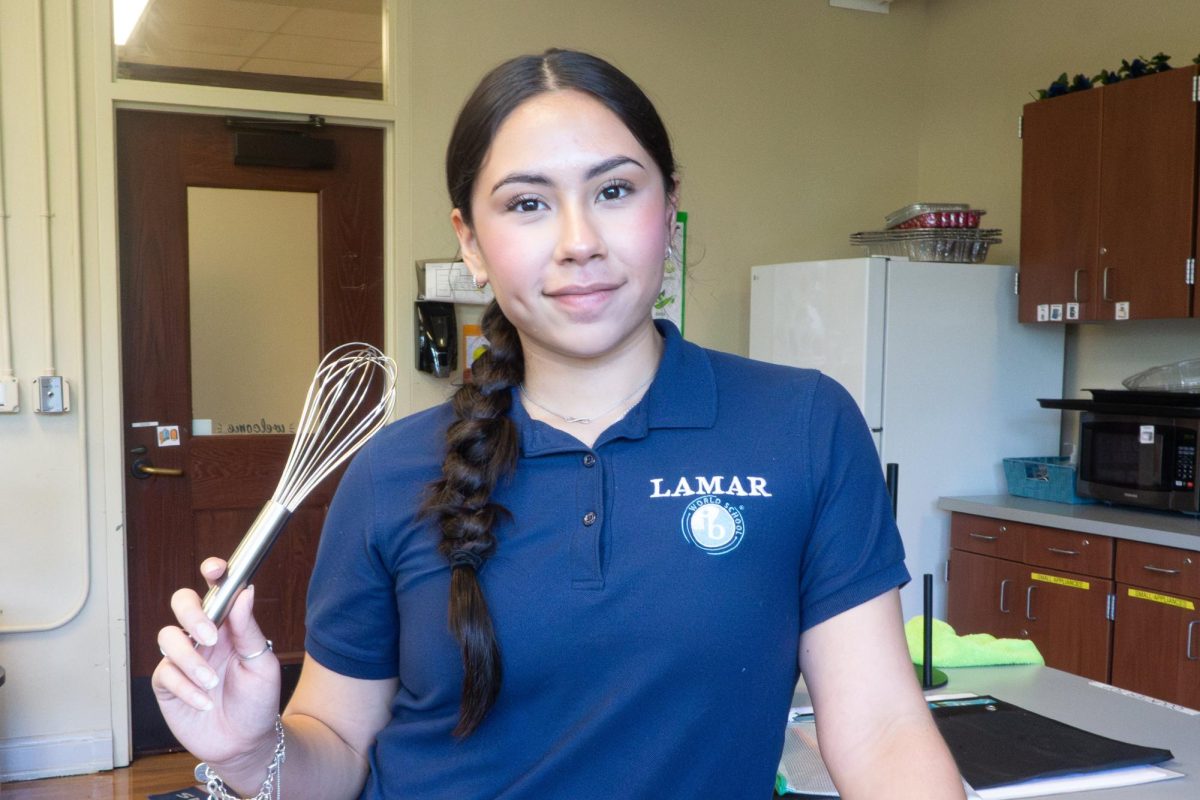Are you ready to grow up yet? Instead of playing house and pretending to be a mother, do you want to experience it? If you’re the eldest Hispanic daughter, you might be used to taking on parental responsibilities all for the sake of maintaining the household.
“No sé qué haría sin ti.” “I wouldn’t know what I’d do without you.”
While these words are intended to be comforting, they seem empty once compared to the mental and physical load that comes with the domestic duties that these daughters carry — cooking, cleaning, changing diapers — many of which they learn how to do before long division.
While tradition believes that being parentified builds character, maturity and a sense of reliability, that’s not what the survivors reflect. “They weren’t able to enjoy much of their childhood because of that responsibility,” says senior Yesenia Tipaz. “So now that they’re older, you see more of their childlike side.” Being born into a burden-filled role simply based on your sex and birth order not only distorts views on relationship dynamics but starts a cycle that sets generations back.
“Machismo”, the Spanish word that means male pride, is both a mentality and a social construct that is prevalent within the Latino community. It defines and sets the expectations for gender roles, oftentimes setting the male as the “head of the family” while the woman is left as a “housewife”.
However, this mindset doesn’t only affect adult relationships, as it influences how children are raised as well. From an early age, girls are expected to start learning how to take care of the household while the men are to enjoy the fruits of their labor. Senior Jessica Gonzalez, who has a younger brother, describes her duties to him to be a major part of what her parents expect of her.
“This summer I was supposed to work at a daycare to get my hours, but instead, my parents had me babysit my brother all summer long. I couldn’t go out, I couldn’t do anything because I was stuck 24/7 at home watching him,” she recounts. “He’s only ten, but when I was ten there was a lot more discipline involved and there was a lot more that my parents wanted out of me.”
These girls are often expected to quickly mature and learn how to balance several tasks at once—even at the cost of their own personal responsibilities. “When I was 12 years old during the pandemic, my parents had to go to work, and I had to take care of my siblings while also studying in online school,” recalls Tipaz. “You get treated way differently, like a second parent. Your parents dedicate more time to the youngest. For example, when I needed help with homework, I had to do it by myself. But whenever my siblings needed help with their homework, I had to help them too.”
This disparaging distinction in how girls and boys are raised alters the girls’ perception of how normal family relationships are supposed to go. It’s even noticeable within the outliers in the Hispanic community who haven’t experienced the same type of treatment. “I can say that there’s a drastic difference between those who have and haven’t,” mentions Emily Ortiz, a Mexican senior who can’t relate to the sentiment of being parentified.
Being parentified isn’t anything new, as the term was made popular by psychiatrist Salvador Minuchin in 1967. However, the phenomenon’s effects have been along for much, much longer. “I feel like it’s been like that even with my grandma when I was growing up,” explains Gonzalez. “She was raised very similarly to how my parents were raised and how I was raised.”
Despite countless generations passing between, not all of them have been able to break the curse. “It’s what usually happens. It goes through generations,” says Tipaz. “You’re caring for your younger siblings whenever your parents can’t do it because of jobs. You have to take care of them, help them with homework, tell them what’s right and what’s wrong. It just comes naturally when you’re the eldest.”
Thankfully the curse is dying little by little due to a major feminist movement in many Latin American countries. The expectation of girls being parentified is beginning to be looked down upon, and men are now asked to have the same amount of household responsibility as their female counterparts.
But nonetheless, there is still much work left to be done. It is up to the next generations to set new expectations for their society. However, the positive tides of change are washing ashore, leaving faith for our future families. “Society changes every decade, every year, every month, every day,” says Gonzalez. “I think that hopefully, things will be different for all Hispanic people.”





























